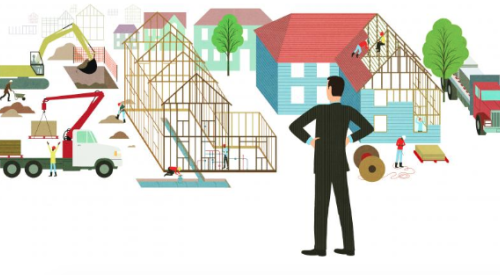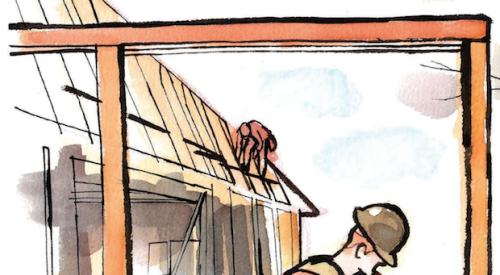This year’s Housing Giants report, which includes our annual rankings of the country’s largest builders and a state-by-state map of where they are building, as well as in-depth features on the state of entry-level housing and the future of master planned communities, offers a comprehensive view of the challenges and opportunities home builders face in the next few years along with how what they are building may be changing.
And there are plenty of challenges. In addition to the aforementioned shortage of land and labor, which 51 percent of those surveyed consider the most important issues facing home building in 2016, respondents also mentioned increased competition from other builders (27 percent) and government regulations. The latter didn’t rank quite as highly this year, but is still perceived as making business more difficult for 15 percent of Housing Giants.
Home prices, a concern that didn’t even make it into the top 10 last year, ranked 4th, with 20 percent of Giants seeing it as a serious problem. Stemming directly from land and labor shortages, as well as increases in material costs, higher taxes and fees, and the need to stay competitive with other builders, rising home prices are essentially the effect of these causes. Prices are also the only public-facing issue, and the one that may keep sales from continuing on their upward trajectory. Reported year-over-year increases in prices for starter and second move-up and beyond homes were remarkable, at 12 percent and nearly 15 percent respectively. Surveys of homebuyers in 2015 were already indicating that price was the main reason why they bought an existing home over a new one; higher prices will further tip those scales.
On the opportunities side, companies are continuing to look to their operations to bring their costs down in an effort to rein in price hikes. As for growth of the companies themselves, it looks as though the consolidation of the past few years has slowed. The merger of The Ryland Group and Standard Pacific Homes was the biggest deal, of course, giving the combined enterprise, CalAtlantic, a national reach, and was concluded, fittingly for these seasoned companies, without much drama. Smaller transactions, such as Pulte’s acquisition of John Wieland, M/I’s purchase of Hans Hagen, and Taylor Morrison’s of Acadia and Orleans seemed geared more toward establishing a foothold in new markets or gaining additional market share in current locations.
For the full lists of opportunities and challenges and for additional infographics, follow the link below.













